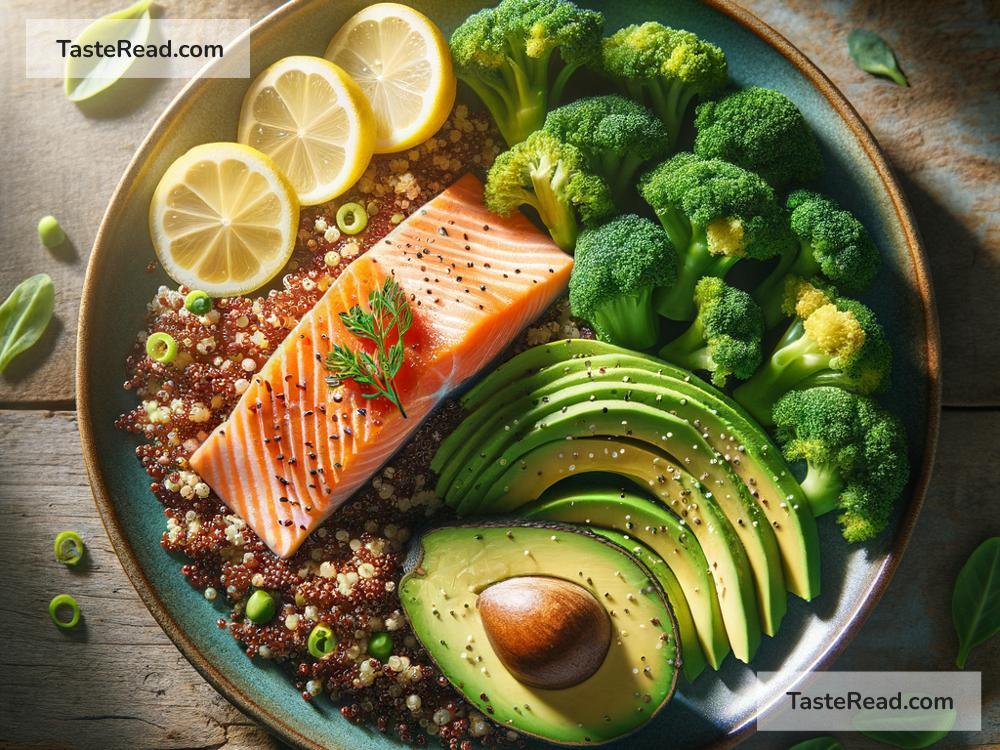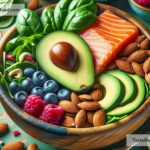Foods for Healthy Aging: Eating Your Way to a Vital Life
As we grow older, our bodies go through changes. From slowing metabolism to reduced muscle strength, our nutritional needs evolve. Healthy aging is not just about staying active or managing stress—it’s also about eating the right foods. A good diet can help fuel your body, promote brain health, prevent chronic diseases, and keep you feeling your best. In this blog, we’ll talk about simple, everyday foods that can be your allies in healthy aging.
1. Power of Fruits and Vegetables
Fruits and vegetables are stars when it comes to healthy aging. They are packed with vitamins, minerals, fiber, and antioxidants, which help fight free radicals in your body. Free radicals are molecules that can damage your cells and contribute to aging.
- Berries (like blueberries and strawberries): Rich in antioxidants, they promote brain health and memory.
- Leafy greens (like spinach and kale): Full of vitamin K, calcium, and fiber, they help maintain bone health and encourage good digestion.
- Sweet potatoes: Loaded with vitamin A, sweet potatoes are great for skin and eye health.
- Tomatoes: Contain lycopene, which supports heart health and may protect your skin from UV damage.
Aim to “eat the rainbow” every day by choosing colorful produce. The diversity in colors means a variety of nutrients for your body.
2. Healthy Fats
Fat isn’t your enemy—it’s essential for aging well! However, the type of fat you eat matters. Healthy fats, such as omega-3 fatty acids, are key to keeping your brain, heart, and joints healthy.
- Fatty fish (like salmon, mackerel, and sardines): High in omega-3s, which reduce inflammation, support brain function, and improve heart health.
- Nuts and seeds (like almonds, walnuts, and chia seeds): Rich in healthy fats, fiber, and protein, they can support weight management and heart health.
- Avocados: Packed with monounsaturated fats, avocados help maintain cholesterol levels and keep your skin moisturized.
Avoid trans fats and over-processed foods. These can speed up aging and increase the risk of diseases.
3. Whole Grains for Lasting Energy
Whole grains are a great source of fiber and energy. As we age, digestion can slow down, and fiber becomes more important for maintaining a healthy gut and preventing constipation.
- Oats: Contain soluble fiber that helps lower cholesterol and keeps blood sugar levels steady.
- Brown rice: A healthier alternative to white rice, it has more nutrients and supports heart health.
- Quinoa: A gluten-free grain packed with protein, vitamins, and minerals that support your muscles and bones.
Whole grains also help regulate weight and reduce the risk of chronic illnesses like type 2 diabetes and heart disease. Swap white bread, pasta, and rice for whole-grain options whenever possible.
4. Lean Protein for Strength
Protein is vital for maintaining muscle mass and strength, especially as we age. Maintaining healthy muscles becomes more important to support balance, mobility, and an active lifestyle.
- Chicken and turkey: Low in fat and packed with protein to fuel your body.
- Eggs: A great source of protein, plus vitamins like B12 to support brain function.
- Beans and lentils: Plant-based sources of protein rich in fiber and nutrients.
- Greek yogurt: High in protein and calcium, it’s great for bone health and digestion.
Don’t forget to pair protein-rich foods with physical activity to keep your muscles strong and prevent loss of muscle mass (sarcopenia).
5. Dairy and Calcium-Rich Foods
Bone health becomes increasingly important as we age. Calcium and vitamin D are essential nutrients for keeping bones strong and preventing osteoporosis.
- Milk and yogurt: Rich in calcium and often fortified with vitamin D, they support bone density.
- Cheese: A tasty source of calcium, but consume in moderation due to its fat content.
- Fortified plant-based milk (like almond or soy milk): A good alternative for those who are lactose intolerant.
- Dark leafy greens: Add spinach or broccoli to your meals for an added boost of calcium.
To maximize the benefits, combine calcium-rich foods with vitamin D from sunshine or supplements to help your body absorb the calcium.
6. Herbs and Spices for Added Benefits
Herbs and spices not only enhance the flavor of meals but also offer anti-inflammatory and antioxidant properties to support good health.
- Turmeric: Contains curcumin, which reduces inflammation and boosts brain health.
- Garlic: Helps lower blood pressure and boost immunity.
- Ginger: Aids digestion, reduces inflammation, and soothes muscles and joints.
- Cinnamon: Supports blood sugar control and provides antioxidants.
Including these in your cooking can add health benefits while reducing your reliance on salt.
7. Water: Don’t Forget to Hydrate
As we age, our sense of thirst may diminish, but staying hydrated remains crucial. Water helps your body function properly, keeps your joints lubricated, and supports skin health. Don’t wait until you feel thirsty—make it a habit to sip water throughout the day. Herbal teas, soups, and water-rich fruits like cucumber and watermelon can also help you stay hydrated.
Conclusion
Healthy aging is about enjoying life with vitality and energy, and the foods you eat play a significant role in feeling your best. By focusing on nutrient-dense options like fruits, vegetables, healthy fats, whole grains, lean protein, and calcium-rich foods, you can support your body and mind through the years. Pairing good nutrition with regular exercise, drinking plenty of water, and staying socially connected can amplify your health and happiness.
Aging is inevitable, but how you age is largely up to you. Make food choices today that your future self will thank you for. Let your plate be a source of nourishment, joy, and health every step of the way!


